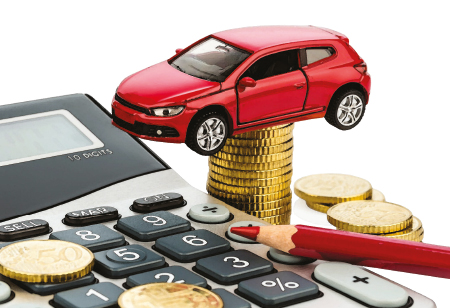One of the biggest employers of the country, India’s automotive sector is battling its worst crisis that it has seen in the last 20 years. The slumping numbers of car sales and bike sales are forcing even the big players in the market to axe off its employees and shut down many of its plants. According to a data compiled by the Society of Indian Automobile Manufacturers (SIAM), the sales of passenger vehicles to dealers came down by 30.9% and the sale of motorcycle and scooters to customers fell by 16.8% and the same data revealed that the passenger car sales have shot down by 36%.
The kind of catastrophe in the industry has led to massive job cuts with motorcycle and carmakers cutting off at least 2.50 lakh jobs. The sector which employs over 35 million people directly or indirectly, is mostly affecting the temporary or contractual employees. Many big companies are planning further job cuts and production cuts. Despite the luring offers and skyhigh discounts, the sector still failed to attract customers and saw an 18% drop in sales. The inventory pile-up and dip in sales can be subjected to a number of reasons like high-interest rates and an increase in vehicle insurance costs. With the introduction of the new Bharat Stage (BS)-VI emission norms, the situation has worsened as people are now reluctant to buy cars with engines that comply with BS-IV norms and not BS-VI norms. Caught in a downward spiral, the stagnation in the auto sector can also be a force of the weakening economic growth and liquidity crunch along with the collapse of many non-banking financial companies (NBFCs) that accounted for a significant share of automobile financing. Moreover, the emergence of electric cars in the scenario has led to uncertainty mounting upon the industry.
The auto industry is demanding tax cuts and easier finance access from the government in order to revive slumping sales. Contributing at least 7% to our country’s GDP, the downturn in the sector can have serious repercussions for the economic growth. If the current situation prevails, the unemployment rate is expected to go higher in the upcoming months, with its effects being felt in all areas of the economy. In a recent move to boost sales, SBI has extended its credit period for automobile dealers to help them tide over the stress building up in the industry. Major carmakers like Maruti Suzuki have been seeking government intervention on the issue so as to boost the sales and fix the crisis prevailing in the sector.
Several agencies have like Federation of Automobile Dealers Associations (FADA) and Automotive Component Manufacturers Association of India (ACMA) have raised their concern about the industry and they have estimated that as many as 10 lakh jobs are at a risk if no urgent action is taken. Analysts and experts have predicted that the situation will only get better in the next financial year and companies should brush themselves up for upcoming months as the sales are expected to be on the negative side.
Highlights of the Downturn Faced by Automotive Industry:
• In the month of July, the sale of vehicles in the country fell to about 18.25 lakh units from 22.45 lakh units, a year ago in the same month; exhibiting the steepest fall in the last 19 years.
• Even though the industry started off 2018-19 on a good note, the domestic passenger vehicle segment saw a decline in the number of sales for the first time in July 2018. Many companies like Ashok Leyland have also announced non-working days in their manufacturing plants.
• The rising price of petrol, a higher interest rate and increase in vehicular insurance cost led to the subdue of consumer sentiment which in turn led to the inventory and stock pile-up. Moreover, with the IL&FS crisis, the sector was faced with a major liquidity crunch.
• Furthermore, with the new norms surrounding the Bharat Stage-IV complaint vehicles, many consumers are holding off purchases and waiting to buy the latest BS-VI complaint vehicles.
• Being one of the largest employers in the country, the automobile sector employment figures were hit hard during the crisis as it led to the closure of 300 dealerships across the country and drove lakhs of people out of their job.
• To curb the current slowdown, industry experts are urging the government to cut down the GST rate to 18 per cent from the current 28 per cent.
• At present, the industry is awaiting the launch of BSVI which will come in April 2020 and it is not expecting any major change in the situation till the next financial year.
